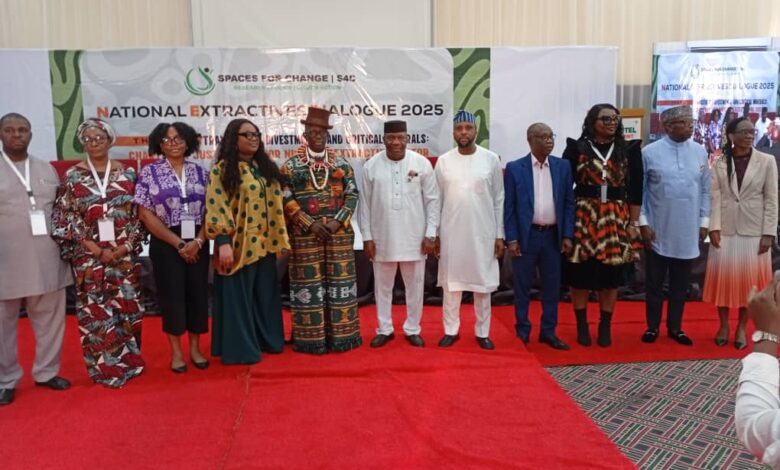Energy transition: CSO calls for strenghtened institutional frameworks, political will

As transition from fossil fuel to cleaner energy continues to gather momentum globally, a civil society organisation, Spaces for Change (S4C) has called on the Federal Government to come up with strong institutional policies and frameworks that would ensure justice to communities and uphold environmental accountability.
It added that transparency, equity, and justice must be the new benchmarks for extractive sector governance in Nigeria.
The Director of S4C, Victoria Ibezim-Ohaeri,
stated this in her welcome address delivered in Uyo, Akwa Ibom State capital at the National Extractive Dialogues 2025 (NED) with the theme, ‘Transitions, Divestments And Critical Minerals: Charting A Just Future For Nigeria’s Extractive Sector’, organized in partnership with Nigeria Extractive Industries Transparency Initiative (NEITI), National Oil Spill Detection and Response Agency (NOSDRA) and Ford Foundation.
The Director stated that failure to take such critical decision now could plunge Nigeria especially communities where the extractions take place into another form of exploitation and environmental degradation as witnessed in the past by fossil fuel extractors.
According to her, “as the world is racing for energy transition, Nigeria must make informed choices on regulation, environmental accountability, and community protection to avoid repeating past mistakes, and the protection of
communities, will determine whether we dismantle a legacy of exploitation or repeat the mistakes
of the past.
“Across the globe, the energy landscape is shifting. Fossil fuel investments are declining. Oil majors
are divesting. New actors are emerging, and the global race for critical minerals such as lithium,
cobalt, and rare earth elements is accelerating. Yet one question looms large: Is Nigeria truly ready for what lies ahead?”
” This is the moment to interrogate past frameworks and confront systems that have failed too many,
for too long. Let us rise, lead, and reimagine, together, a just future for Nigeria’s extractive sector.”
In his remarks, the House of Representatives Committee Chairman on Solid Minerals, Mr Gaza Gbefwi, said from the International Energy Agency (IEA) report, the demand for mining of critical minerals such as lithium, cobalt, nickel, graphite, and rare earth elements is projected to increase.
He, therefore, urged the Federal Government to initiate policies and regulations that would monitor implementation of mining reforms and ensure compliance with Environmental and Social Governance (ESG).
Gbefwi noted that such proactive move would not only put Nigeria on the global clean energy supply chain; but forestall the repetition of oil sector mistakes such as resource extraction without community development or remediation.
He added, “Nigeria cannot afford to be a bystander in the global clean energy revolution. We must be
deliberate, not just in extracting critical minerals—but in governing them with foresight, justice,
and national purpose.”
In a goodwill message, Executive Secretary/CEO of NEITI, Dr. Orji Orji, said the agency has launched a Data Centre to provide real-time, automated, and centralised extractive sector data, which will support transparency and accountability.
He emphasised the need for a coordinated approach to address the challenges and opportunities arising from the global shift to clean energy, divestments, and the growing demand for critical minerals.
On his part, the Director General of NOSDRA, Chukwuemeka Woke, harped on the need for clear divestment protocols, environmental audits, and enforceable post-exit obligations.
He said as Nigeria prepares to exploit critical minerals, mistakes of the past should not be repeated saying that extractive expansion must be accompanied by strong environmental oversight, community engagement, and transparent governance.





